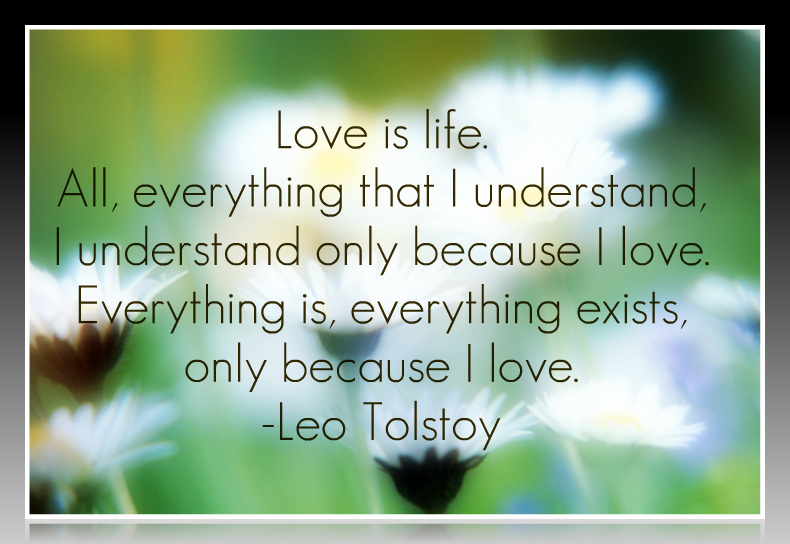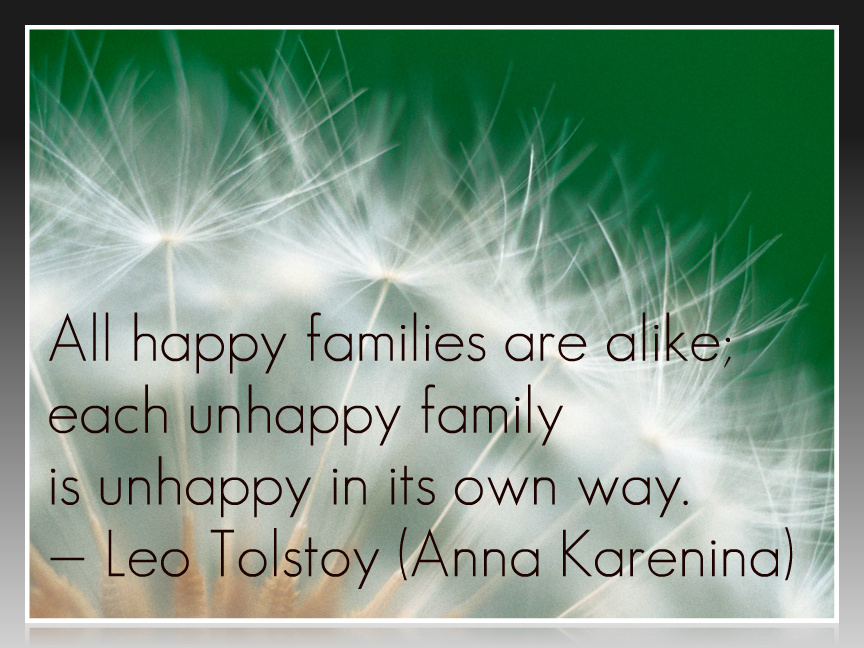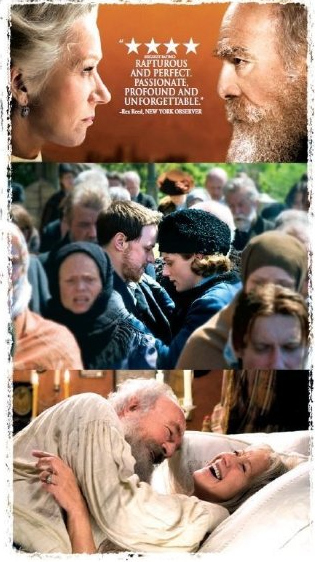
Reading Anna Karenina has been so overwhelming and gratifying that I chose to walk away from it for a short while. I decided to take time to digest the scope, the breadth, the depth in this masterpiece of a novel. It is of course an overly ambitious task to ever digest it all. This is only my first reading by the Russian novelist, Leo Tolstoy, but most definitely not my last. So it was especially fortuitous when we chose to watch “The Last Station” about his life on a girls’ night out celebrating Russia’s International Women Day on Monday, March the 8th.“The Last Station” recounts the last year in the life of Leo Tolstoy, depicting how his beliefs manage to become increasingly overpowering towards the end of his life, and eventually separating him from his wife of many years, Countess Sofya Tolstoy.
Tolstoy’s wife and marriage were a far cry from an ordinary marriage gone sour. The commitment of his love for her seemed evident in his every move, every glance and every gesture. She loved him too. Yet she had to balance all this with his willingness to give away all of his wealth and even the copyrights to his masterpieces as his beliefs grew more radical. She fought him and his disciples with tact and diplomacy, but most of this was often counteracted by her temper tantrums from anger. She was teetering on desperation and defeat as he was completing what seemed to him the most important mission of his life.
To my surprise, she seemed as complex, as deep, as full of life and love as Tolstoy’s own fictional characters. They struggled greatly together in a doomed relationship which deteriorated towards the end of his life. I find it bitterly ironic that Tolstoy who attributed all of his understanding in the world to love and love alone was not able to salvage his own marriage, if indeed he loved his wife as much as the movie suggests. Perhaps this was all for a grander purpose, and perhaps love can be love without being everlasting in nature. Or perhaps a happy lasting partnership with a literary genius is simply impossible. I believe the truth stays behind closed doors of every unhappy marriage and we can only speculate. But speculation “The Last Station” did in a most remarkable, awe-inspiring and unforgettable way.
I am as always quite pleased with myself for not following NY Times advice for my movie selection (or anything else for that matter) as it turns out they quite sadly missed the mark on this film. The Last Station is a beautiful movie with gorgeous cinematography, well-chosen music, thoughtful and dramatic dialogue and remarkable actors. It is an original. But most of all, some of the scenes are too real and too raw to be Hollywood; they felt more improvised than rehearsed. Sofya running to Tolstoy’s room to sleep next to her husband, assuring herself of his affection early in the morning. Tolstoy asking for a pen to sign the revised will, a subtle detail which had clearly escaped every one’s mind and caused a natural awkward moment in an otherwise serious scene. And my favorite line, where Sofya says to Valentin about the aria playing in the background, “It’s about a woman who has been abandoned by a man she loves. Everyone finds that so moving. In the opera!”.
It reminded me in the spontaneity regard alone of Jaffa, an Israeli film I watched at the Toronto Film Festival where I felt as though I were present in the same room watching events of people’s lives unfold for the first time. I was watching real life not a film. The earnestness of their happiness and the depth of their struggles and sorrow all seemed too natural and too perfect for a movie.
I never understood the real purpose of the “Tolstoyan movement” in the movie; the disciples seemed to be carrying out Tolstoy’s wishes by signing off all of his wealth to humanity (or to some select benefactors, who knows!) and even renounce copyrights to his own works. Vladimir Chertkov is Tolstoy’s secretary and for all intent and purposes, he lacked sincerity in his role. But this is nicely balanced with the new innocent and young secretary, Valentin Bulgakov, who affords us a little side romance and fun. Tolstoy seems to enjoy his leadership and his influence on his followers as much as he enjoys the company of his wife (for the most part); he clearly chooses the former at the end. Sofya Tolstoy, who puts on the most remarkable performance of all the characters, is the epitome of drama, courage, tact, cunning and passion at its finest. She is phenomenal. I admired her for standing up to Tolstoy for her own beliefs. The turmoil between them is unfortunate and far more bitter for Sofya who had much more at stake.
I believe that no one can truly understand men of such genius, not their wives, not their children, not even their most devout followers. Their ideals and vision are only for them to see, to know and to recognize. The rest of us are forever trying in vain to have that level of understanding.
The movie depicts Tolstoy’s life only at the very end. Yes I know that was the scope, but I regret not learning more about him. How was he able to produce not one but two novels that have reached the pinnacle of literary classics? What was he like when he was writing War and Peace and Anna Karenina? What was his daily schedule and his writing habit and whence did his inspiration flow? It seems that those were more peaceful days for him during his relationship with Sofya, and no doubt, his most prolific period. Why is it we can never know quite enough to satiate our curiosity about the creators of the timeless gifts in this world?
The best movies stay with you days and weeks after you watch them. One based on the life of a literary genius can have a particularly special effect even if many liberties were taken with the truth. During the movie, I noticed I was not the only one on the edge of my seat unable to digest the intricate details which created this most wholesome film. I was thankfully mesmerized by the captivating scenes which afforded me a glimpse to the life of one of Leo Tolstoy.
I think I am now ready to re-open my Anna Karenina and resume my journey into one of the greatest novels ever written.


 I am Farnoosh, the founder of Prolific Living. So glad you are here. My mission is to empower you to unblock your creative genius to live your dream life.
I am Farnoosh, the founder of Prolific Living. So glad you are here. My mission is to empower you to unblock your creative genius to live your dream life.